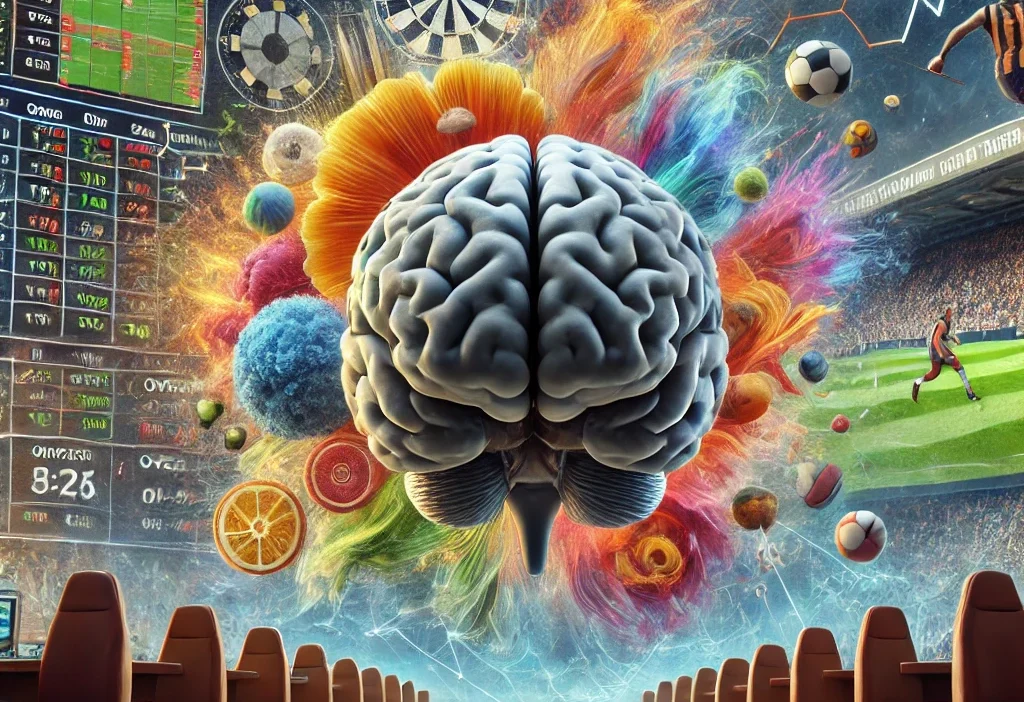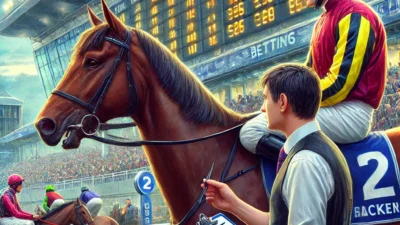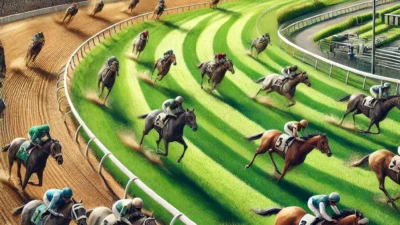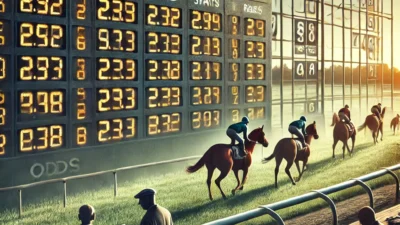Research highlights that sports bettors are often influenced by a range of cognitive biases, which can distort their decision-making and lead to suboptimal betting choices. One of the most well-documented biases is the favorite-longshot bias, where bettors tend to undervalue favorites and overvalue longshots. This bias is common across various betting markets and can result in inefficient odds that bettors may exploit (Newall & Cortis, 2021; Andrikogiannopoulou, 2011; Goto & Yamada, 2023; Kan, 2020). Bettors’ preference for higher-risk, higher-reward bets leads them to overestimate the probability of longshots, potentially driving mispricing in the market.
Other cognitive biases that impact betting behavior include the availability heuristic, where bettors judge the probability of an event based on how easily examples come to mind, often leading them to overestimate the likelihood of recent events. Anchoring bias causes bettors to base their expectations on initial information, such as pre-season rankings or early results, which may not fully reflect a team’s true strength (Ahuja, 2024). Similarly, framing bias refers to the tendency for bettors to make different decisions depending on how a betting situation is presented, such as the difference between betting on a team to win versus betting on them to cover the spread.
Additionally, many bettors create “intuitive longshots,” a form of betting where they combine events that seem representative of an ideal outcome but may not reflect accurate probabilities. These bets are often motivated by the appeal of high potential winnings, despite the low likelihood of success (Newall et al., 2019). The recency bias also plays a role, with bettors favoring teams that have recently experienced success, even if those results are not predictive of future performance (Durand et al., 2021). Similarly, bettors tend to overreact to news about player availability, misjudging the impact of such information on the overall outcome of a game (Durand et al., 2021).
Marketing techniques, particularly price-related promotions, are often used by bookmakers to capitalize on these biases. For example, special offers may encourage bettors to place bets they wouldn’t otherwise make, and these promotions can make it more difficult for problem gamblers to stop betting (López-González et al., 2020). Despite increased competition in betting markets, these biases remain prevalent, as bookmakers are often able to exploit and reinforce them, further skewing betting decisions and market efficiency (Goto & Yamada, 2023). Ultimately, understanding these cognitive biases is essential for both bettors and researchers, as they reveal underlying inefficiencies in sports betting markets that can be exploited, while also highlighting the challenges faced by bettors in making rational, informed decisions.
Anchoring bias causes bettors to base their expectations on initial information, such as pre-season rankings or early results, which may not fully reflect a team’s true strength
Summary of: ahuja 2024
Anecdote
Have a story to share? Write to us at research@bettingresearch.org if you have a related, personal experience you would like to see placed here and share with the community.
Articles Cited
- “Sumair Ahuja (2024): Cognitive Biases in Sports: Examining Their Influence on Athletic Decision-Making, https://doi.org/10.36948/ijfmr.2024.v06i05.28202
- The paper examines the influence of cognitive biases on the decision-making of amateur athletes, finding that biases such as loss aversion, anchoring, availability heuristic, framing bias, endowment effect, and sunk cost fallacy significantly impact their in-game decisions and performance.”
- “P. Newall, Dominic Cortis (2021): Are Sports Bettors Biased toward Longshots, Favorites, or Both? A Literature Review, https://doi.org/10.3390/RISKS9010022
- Sports bettors exhibit biases towards both longshot and favorite bets, with the type of bias depending on the structure of the betting market.”
- “P. Newall, Lukasz Walasek, Rebecca Vázquez Kiesel, Elliot A. Ludvig, Caroline Meyer (2019): Betting on intuitive longshots, https://doi.org/10.31234/osf.io/nk6tw
- The paper explores patterns in bettor preferences and bookmaker profitability for “”request-a-bet”” services on Twitter, where bettors can design custom bets, finding that these bets have much higher bookmaker profit margins compared to conventional sports bets.”
- “Angie Andrikogiannopoulou (2011): Market Efficiency and Behavioral Biases in the Sports Betting Market, –
- The paper examines the efficiency of the soccer wagering market and the behavioral biases of individual bettors, finding evidence of a mild systematic bias known as the favorite-longshot bias where bettors tend to underbet outcomes with short odds and overbet outcomes with long odds.”
- “Shingo Goto, Toru Yamada (2023): What drives biased odds in sports betting markets: Bettors’ irrationality and the role of bookmakers, https://doi.org/10.1016/j.iref.2023.03.002
- Bookmakers tilt odds in sports betting markets to maximize their own speculative profits by accommodating bettors’ irrationality, which reinforces systematic biases in betting markets.”
- “Robert B. Durand, Fernando M. Patterson, Corey A. Shank (2021): Behavioral Biases in the NFL Gambling Market: Overreaction to News and the Recency Bias, https://doi.org/10.2139/ssrn.3861231
- This paper examines the recency bias and overreaction in the NFL betting market from 2003 to 2017, finding that bettors are more likely to bet on teams who have won previous outcomes, and that the magnitude of prior wins and losses plays a greater importance than just the outcome, and that bettors wager less on the home team when their first-string quarterback does not play but more when the visitor’s first-string quarterback does not play, which is consistent with overreaction.”
- “A. Kan (2020): Efficiency, Bias, and Decisions: Observations from a Sports Betting Exchange, –
- The paper examines the efficiency of sports betting markets, finding that they serve as good predictors of true outcomes but exhibit a bias where favorites are undervalued and longshots are overvalued, which the authors attribute to behavioral factors like prospect theory rather than information or transaction costs.”
- “Hibai López-González, M. Griffiths, S. Jiménez-Murcia, A. Estévez (2020): The perceived influence of sports betting marketing techniques on disordered gamblers in treatment, https://doi.org/10.1080/16184742.2019.1620304
- The paper examines how problem sports bettors perceive the influence of gambling marketing and advertising techniques on their disordered gambling behavior.”
Insufficient Detail?
At times it is difficult to answer the question as there are not enough relevant published journal articles to relate. It could be that the topic is niche, there’s a significant edge (and researchers prefer not to publish), there is no edge or simply no one has thought to investigate.



